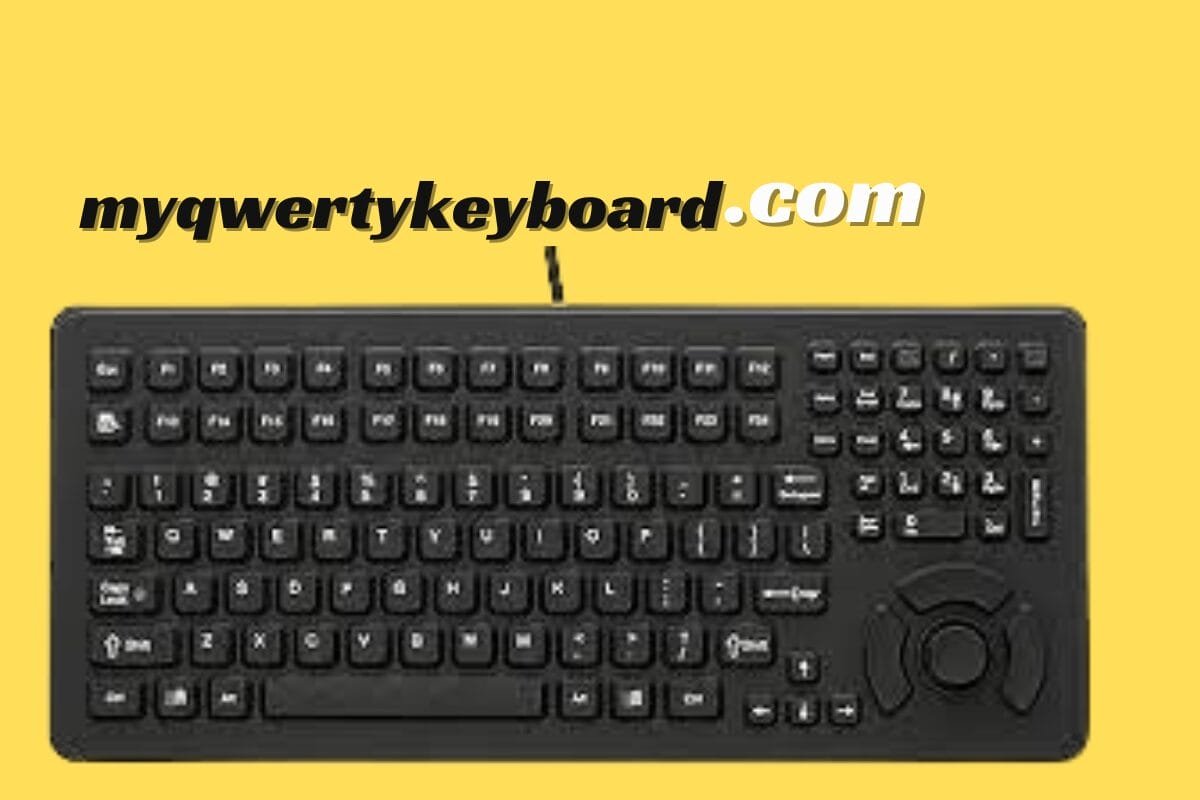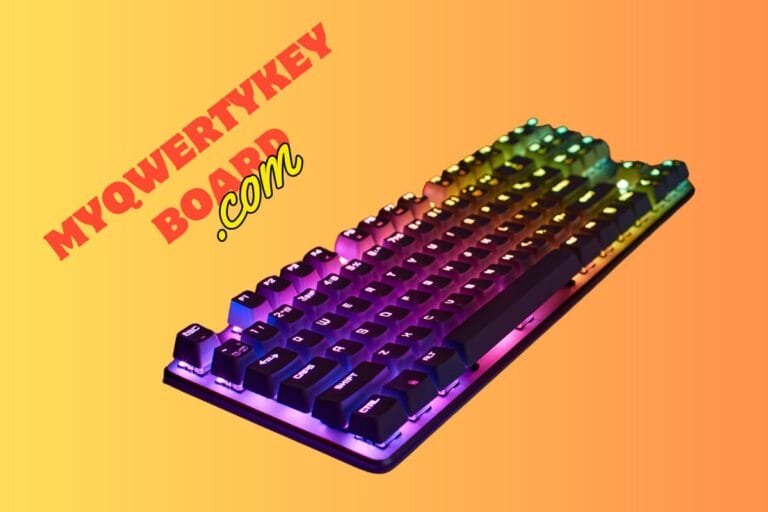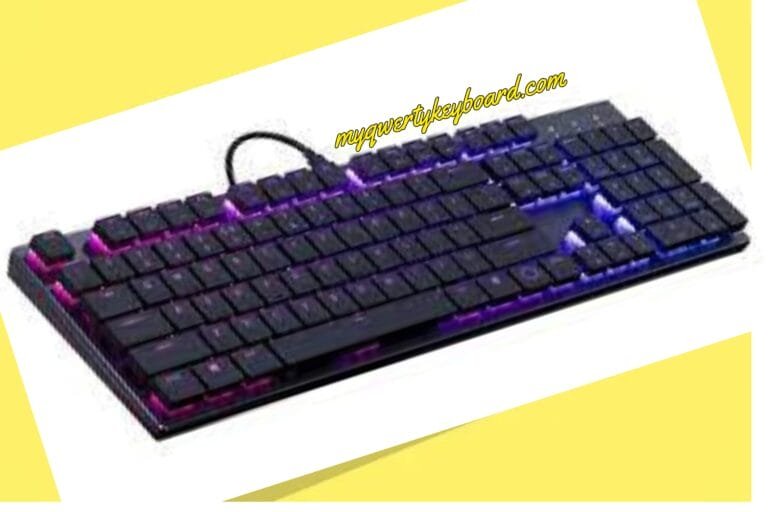Reviewing Industrial Keyboard Types
Industrial keyboards, designed for the demanding conditions of factories, manufacturing processes, and other industrial locations, are an important but sometimes ignored part of industrial computing. Industrial keyboards are made to withstand the severe conditions seen on the production floor, whether it is avoiding the effects of accidental spills, dust, or rapid temperature changes. This all-inclusive guide is designed to walk industrial engineers and manufacturing experts through the wide range of mechanical and membrane keyboards as well as their features and applications.
Types of Industrial Keyboards
Industrial keyboards are crucial in various settings due to their durability and unique features, making them essential for various industrial settings.There are some industrial keyboards under below:
Membrane Keyboards
Membrane keyboards are the most often used industrial keyboard types known for being reasonably quiet and affordable. The membrane keyboard is sturdy and stain-resistant, with three layers. When users apply force to the upper layer, the lower layer registers the keypress. Because of its simplicity, mechanical failure is also less likely, essential in industrial settings where availability must always be maintained.
Mechanical Keyboards
A different mechanical switch is used for each key on a mechanical keyboard. When pressed, a key provides an attractive click, making the user’s sense of touch even more valuable. Unlike membrane keyboards, mechanical keyboards are far more durable, lasting much longer and surviving more keystrokes. Furthermore, simplifying maintenance and repair is a specific switch design.
Stainless Steel Keyboards
Stainless steel keyboards are particularly durable, able to endure severe mechanical stress, making them excellent for use in public or industrial situations prone to damage or heavy use.
Capacitive Keyboards
Without the need for direct contact, capacitive keyboards use impedance changes to identify a finger’s presence and placement. Because they have an almost covered surface, they are straightforward to clean and resistant to infection. A modern, low-profile form made possible by this touch technology may be highly appealing in workplaces where hygiene and space are valued highly.
Silicone Keyboards
Silicone keyboards are entirely covered in silicone, resulting in a durable and highly flexible keyboard that is practically resistant to fluid intrusion and accidental falling. These keyboards may often be folded up for easy storage and transit. While silicone keys are highly durable, their physical response differs significantly from standard keyboards, and users may require some time to adjust.
Backlit Keyboards
Backlit industrial keyboards incorporate LEDs or other light sources behind the keys, making them ideal for low-light environments every day in many production facilities. The backlighting can also be color-coded to improve efficiency and ease of use. Backlit keyboards are often used with touchscreen displays for better visibility. They can contribute to better user ergonomics and reduce eye strain.
Key Features and Benefits
Industrial keyboards are adept at withstanding physical challenges and offer a range of features built for the specific needs of manufacturing professionals. Here are some key benefits:
Durability
Durability is the key selling point for industrial keyboards. They are often tested to military standards for resistance to shock, vibration, and temperature extremes. Industrial keyboards are also rated for millions of actuation, ensuring longevity compared to standard consumer keyboards.
Water and Dust Resistance
Many industrial keyboards feature an ingress protection (IP) rating, which indicates the degree of protection against intrusion from water and dust. IP ratings are critical in environments where equipment is regularly exposed to large volumes of these elements, such as in a foundry or food processing plant.
Customization Options
Industrial keyboard manufacturers often provide extensive customization options. From integrating specific features to programming keys for niche applications, these keyboards can be tailored to the unique needs of a production line.
Interface Compatibility
To ensure compatibility with older and newer industrial machinery, industrial keyboards come with various connectors and interfaces, including USB, PS/2, and serial. Some even support wireless connectivity, providing more flexibility in setting up workstations.
Applications in Different Industries
Industrial keyboards find extensive application across various sectors, each leveraging the unique features of these durable input devices to enhance operational efficiency and maintain high standards of safety and reliability:
Manufacturing
Industrial keyboards are a critical component of the Human-Machine Interface (HMI) in the manufacturing industry. They are utilized in sophisticated CNC machines, assembly lines, and control panels to input commands and monitor processes. They must, therefore, be capable of withstanding harsh conditions while providing clear, reliable input.
Automotive
The tight tolerances and precision required for automotive assembly demand industrial keyboards that are tough but also precise and responsive. These keyboards help with quality control, inventory management, and other production processes where a durable, precise input tool is essential.
Healthcare
In healthcare environments, where cleanliness and infection control are paramount, industrial keyboards can be found in operating rooms, labs, and patient bedside terminals. Their sealed designs and resistance to chemicals make them an invaluable asset in the quest for hygiene.
Logistics
Logistics operations rely heavily on industrial keyboards for inventory management, order picking, and shipping processes. The keyboards in use here must be rugged enough to withstand heavy use and be easy to clean and maintain for high standards of cleanliness.
Choosing the Right Industrial Keyboard
Picking the most suitable industrial keyboard requires careful consideration of several factors:
Factors to Consider
Environmental Conditions: The specific conditions of an industrial setting will dictate the level of ruggedness and protection needed for an industrial keyboard. Ensure the selected keyboard meets the IP rating requirements and is suitable for the environment.
User Preferences: Understanding the user’s preferences and ease of use is crucial. Mechanical keyboards may be preferred by users who appreciate the tactile feedback and responsiveness.
Regulatory Compliances: In industries with strict health and safety regulations, such as healthcare and food processing, choosing a keyboard that complies with relevant standards is crucial.
Best Practices for Selection
Conduct a Thorough Analysis: Perform a comprehensive review of the industrial environment, human factors, and specific usage requirements.
Test Options: Test various keyboard types with potential users to determine the most suitable option.
Consider Long-term Costs: While an initial investment in a more durable keyboard may be higher, it can save significant costs in repairs and replacements.
Conclusion
Industrial keyboards are not only an opening to digital input in manufacturing but also dependable and durable equipment critical for productivity and security. Professionals may make better judgments by understanding the many types of industrial keyboards available and the applications they serve. Note that the most influential industrial keyboard for your business is not the one that appears to be the most durable on paper but also the one that meets your specific requirements, such as a properly carved keycap on a switch.
FAQs
What is the average lifespan of an industrial keyboard?
The average lifespan of an industrial keyboard can vary depending on the model and usage. However, generally, they are designed to withstand millions of key presses and can last several years under typical industrial conditions.
Can industrial keyboards be used in extreme temperatures?
Yes, many industrial keyboards are built to operate in extreme temperatures. However, checking the product specifications for the exact temperature range each model can handle is essential.
Are there wireless industrial keyboards available?
Yes, there are wireless industrial keyboards designed to offer flexibility and reduce cable clutter in industrial environments. These keyboards use Bluetooth or proprietary wireless connections to communicate with computers or HMI systems.
How do I clean an industrial keyboard?
Cleaning procedures depend on the keyboard’s design and IP rating. Generally, industrial keyboards with a high IP rating can be cleaned with mild soapy water or disinfectants. Always refer to the manufacturer’s cleaning instructions to avoid damaging the keyboard.
Can I customize the layout of an industrial keyboard?
Many manufacturers offer customization options for industrial keyboards. This can include custom keycaps, programmable keys, and even entirely custom layouts to fit specific industrial applications.
How important is the IP rating when selecting an industrial keyboard?
The IP rating is crucial as it indicates the keyboard’s level of protection against dust and water intrusion. Selecting a keyboard with the appropriate IP rating for your environment ensures durability and longevity.






